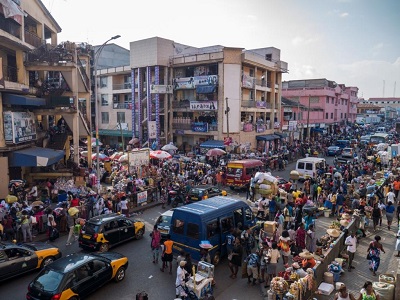World Bank Urges Ghana to Pursue Reforms for Generational Economic Transformation
The World Bank Group has outlined a pathway for Ghana to achieve a generational economic transformation, stressing the need for comprehensive policies and institutional reforms to boost productivity, strengthen human capital, and improve infrastructure services.
In its latest Policy Notes, “Transforming Ghana in a Generation”, the Bretton Woods institution projects that if reforms are implemented effectively, Ghana could sustain annual growth rates above 6.5 percent, triple per capita income by 2050, and counter mounting pressures from demographic trends and the decline in natural resources.
Ghana’s economic performance has stalled in recent years, with per capita income hovering around US$2,200 over the past decade. Poverty still affects more than a quarter of the population, while regional inequalities have widened due to limited structural transformation and dependence on natural resources.
A severe macroeconomic crisis in 2022 further exacerbated joblessness and slowed poverty reduction efforts.
“Ghana has a unique opportunity to restore fiscal discipline, improve governance, and leverage natural and human capital resources for broad-based and inclusive development to transform the country within a generation,” said Robert Taliercio, World Bank Division Director for Ghana, Liberia and Sierra Leone.
“To sustain high growth, it must join other countries that have avoided the middle-income trap by maintaining macroeconomic stability, low inflation, and sustainable public finances,” he added.
The report warns that Ghana must break from past cycles of fiscal indiscipline, inefficiency, and repeated IMF interventions. It calls for fiscal consolidation, transparency, institutional reforms, and a credible debt sustainability plan, while cautioning against premature re-entry into the Eurobond market.
According to the Policy Notes, four pillars are critical for driving Ghana’s transformation – restoring macro-financial stability through improved revenue collection and expenditure management; boosting productivity and job creation in high-productivity sectors while building human capital; ensuring sustainable management of natural resources and resilient agriculture and infrastructure; and reinforcing governance through stronger institutions, anti-corruption measures, and public sector reforms.
“The choices Ghana makes now can unlock a generation of inclusive, resilient growth and deliver on the promise of sufficient quality jobs for its citizens,” noted Stefano Curto, Lead Economist for Ghana, Liberia and Sierra Leone and lead author of the report.
“The World Bank Group stands ready to support Ghana’s leadership and the efforts of all stakeholders to make that promise real,” he added.








